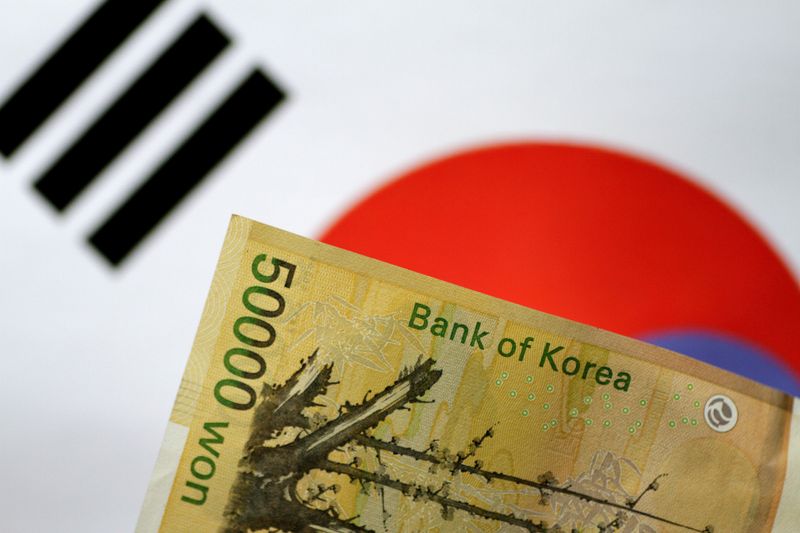By Gertrude Chavez-Dreyfuss
NEW YORK (Reuters) – The South Korean won fell to a more than two-year low against the dollar on Tuesday, while exchange-traded funds linked to South Korean stocks similarly pared losses after President Yoon Suk Yeol said he would lift martial law. had imposed a few hours earlier.
Yoon’s declaration of martial law was voted down unanimously by 190 lawmakers in parliament, with his own party urging him to lift the decree. Under South Korean law, the president must immediately lift martial law if parliament demands it by a majority vote.
The South Korean unit fell as low as 1,443.40 won per dollar, the lowest since October 2022, in the wake of Yoon’s declaration of martial law. It last fell almost 1% to 1,418.18.
“It’s a very confusing situation,” said Marc Chandler, chief market strategist at Bannockburn Forex in New York. But ultimately, he noted that the news in South Korea is local and has limited impact.
“Our corporate clients do not have exposure to the Korean Won for a number of reasons. First, the Korean Won is a restricted currency. And second, most of the trade between the US and South Korea is conducted in US dollars. “
Yoon previously said he had no choice but to resort to such a measure to safeguard the free and constitutional order. Opposition parties have taken the parliamentary process hostage to plunge the country into crisis.
Shares listed abroad have swooned before, but are now recovering some of their losses. The MSCI South Korea ETF wasn’t at its bottom but was still down 0.9% at 1,417.07 won, while the Franklin South Korea ETF was down 1.1%.
With losses of more than 9% so far this year, the won is one of the worst performers in Asia and under continued pressure as the Bank of Korea aggressively cut rates to support the economy and investors fled a market they see as heavy is exposed to exports and US trade tariffs on China.

“The Korean won is already under pressure from the looming threat of tariffs and their damaging impact on export-driven economies,” said Rong Ren Goh, portfolio manager in Eastspring Investments’ fixed income team in Singapore.
“This latest development is likely to exacerbate the currency’s weakness, encouraging speculators to use the won as a proxy for high beta to express rate-related risks.”


